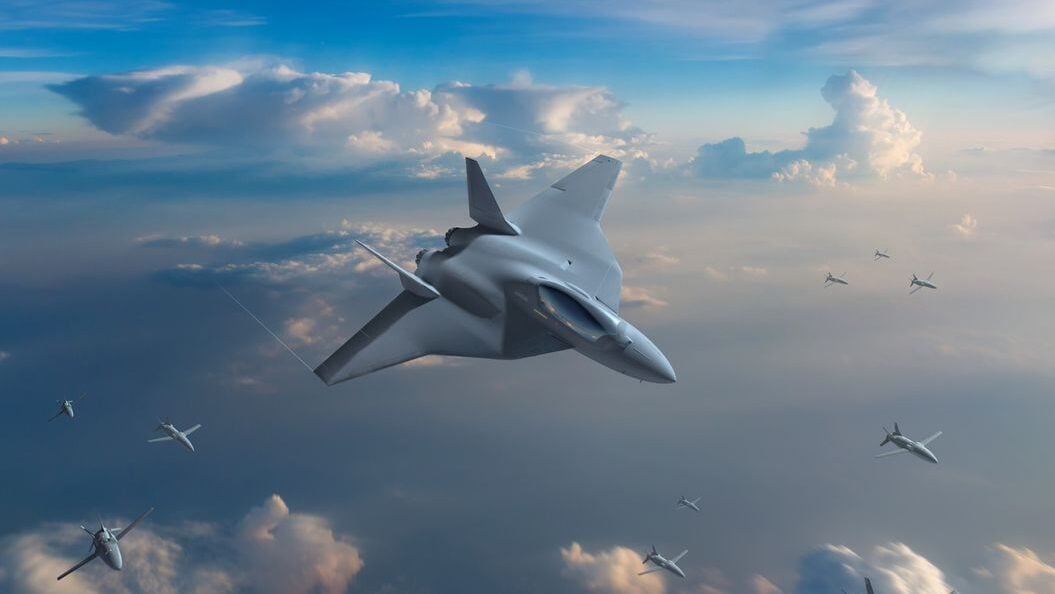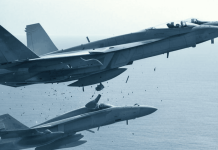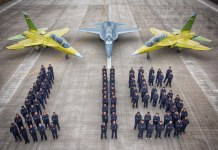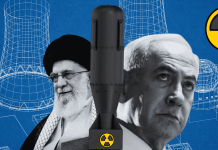A high-ranking Belgian official has disclosed that her country is set to become the fourth partner nation, following Germany, France, and Spain, to participate in the Future Combat Air System (FCAS)/SCAF sixth-generation fighter program by June 2025.
The FCAS program, a ‘system of systems’ anchored by a sixth-generation fighter jet, involves collaboration among companies from France, Germany, and Spain.
Belgium’s Defense Minister, Ludivine Dedonder, outlined the anticipated timeline in a recent LinkedIn post following the country’s initial commitment to the project at the Paris Air Show in June.
Dedonder also disclosed that Brussels is poised to finalize signing an FCAS observer status membership agreement next month.
She highlighted the significance of this move, describing it as a pivotal step towards enhancing global security and fostering innovation in the defense sector.

In her statement, Dedonder emphasized that developing a next-generation air combat capability presents a unique opportunity for Europe.
She underscored Belgium’s commitment to fostering peace, stability, and innovation in defense to collaboratively build a secure and prosperous future for the nation and its partners.
However, once Belgium attains full partnership status within the program, its precise role in funding and industrial contributions will be made public.
The current FCAS industry leads, including France’s Dassault, Germany’s Airbus, and Spain’s Indra, are aiming to develop a Next Generation Fighter (NGF), Remote Carriers or adjunct aircraft, and a combat cloud—a multi-domain capable, data-rich network enabling cross-platform information sharing.
Reports suggest that Belgium is set to join the program before the onset of Phase 2 in the FCAS initiative. Currently, the program is in Phase 1B, wherein manufacturers are tasked with designing a technology demonstrator for the ‘system of systems,’ centered around the sixth-generation fighter jet known as the Next Generation Fighter (NGF).
Potential Escalation Of Industrial Friction?
The FCAS program has faced numerous challenges since its inception, marked by disagreements on design and financial aspects.
A significant impasse occurred when the conflict between aircraft manufacturers Airbus and Dassault halted the program, with disagreements arising over technology sharing and leadership responsibilities.
Furthermore, Germany’s commitment to the project was recently questioned when reports surfaced about the country considering abandoning the joint next-generation fighter jet project with France in favor of participating in a rival program alongside Britain.
However, Germany later refuted these reports, emphasizing the importance of its collaboration with France. These issues have reportedly led to delays in the overall development timeline.
The French Directorate General of Armament (DGA) outlined in a summary of FCAS that operational systems would be in service “by 2040,” but Dassault Aviation’s CEO Eric Trappier dismissed this timeline as “out of the question” due to the project’s complexity. Trappier suggested a more likely timeframe between 2042 and 2044.

Consequently, there is a belief that Belgium’s involvement in the project may exacerbate tensions among industrial partners.
If Belgium fully joins the program, discussions between participating nations and manufacturers are anticipated before initiating tangible production for the flight demonstrator in Phase 2.
Thus, the complete engagement of Belgium is poised to rekindle tensions that previously resulted in a year-long deadlock before the industrial stakeholders reached a consensus for Phase 1B.
Just days before the Paris Air Show 2023, Eric Trappier, Chairman and Chief Executive Officer of Dassault Aviation, expressed reservations about Belgium’s involvement in the FCAS program.
Dassault CEO Eric Trappier strongly objected to discussions regarding Belgium’s participation in the FCAS program due to Brussels’s acquisition of F-35 aircraft. This contradicted Dassault’s competing proposal to replace F-16 jets with Rafale aircraft.
Trappier went to the extent of stating that he would “fight” against any prospective decision that involved assigning roles to Belgian companies within the FCAS program, as the Brussels Times website reported.
This FCAS initiative should not be conflated with another FCAS program led by the UK and supported by Italy and Japan, where Tempest is the combat aircraft element.
The FCAS program led by the UK is progressing at a swifter pace, aiming to commence full-scale development by 2025 and introducing the Tempest airframe into service a decade later.
- Contact the author at ashishmichel(at)gmail.com
- Follow EurAsian Times on Google News




